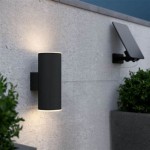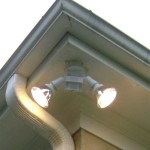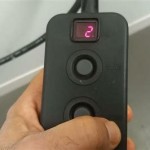Why Is My Outdoor Light Flashing?
Flickering or flashing outdoor lights can be a frustrating and perplexing issue. These lights serve a crucial purpose, providing security and illumination for your property, and a malfunction can leave you feeling vulnerable and inconvenienced. The reasons behind this behavior can range from simple troubleshooting to more complex electrical issues. Understanding the potential causes can help you diagnose the problem and take appropriate steps to address it.
Loose Wiring or Connections
A common culprit for flashing outdoor lights is loose wiring or connections. Over time, exposure to the elements can cause wires to become brittle and break, or connections to become loose. Wind, rain, and temperature fluctuations can all contribute to this degradation. The intermittent connection created by loose wiring can lead to flickering or flashing lights. To check for loose connections, carefully inspect the wiring at the fixture, the junction box, and the switch. Make sure all wire nuts are securely fastened and all connections are tight.
Faulty Light Bulb
Another possible reason for flashing lights is a faulty light bulb. Incandescent bulbs are known for their short lifespan and can often fail abruptly. When a bulb is nearing the end of its life, it may flicker or flash before burning out completely. To test this, replace the bulb with a new one of the same wattage and type. If the flashing stops, you've identified the problem.
Electrical Overload
If you have multiple outdoor lights connected to the same circuit, an electrical overload is a potential cause for flashing. When too many devices are drawing power from a single circuit, it can become overloaded, leading to voltage fluctuations that cause lights to flicker or flash. To address an electrical overload, you may need to install a new circuit or distribute the load across multiple circuits. It's essential to seek professional assistance from a qualified electrician to ensure the work is done safely and correctly.
Power Surge or Voltage Drop
Sudden fluctuations in power supply, such as power surges or drops, can also cause outdoor lights to flash. Power surges are sudden spikes in voltage, often caused by lightning strikes or electrical equipment malfunctioning. Voltage drops occur when there's a decrease in voltage, usually due to a heavy load on the electrical system. Both power surges and voltage drops can damage electrical components, including light fixtures, and cause them to malfunction.
Faulty Wiring or Circuit Breaker
Problems within the wiring itself or a faulty circuit breaker can also contribute to flashing lights. Damaged or corroded wiring can create a resistance to electricity flow, leading to flickering. A tripped or faulty circuit breaker can interrupt the flow of electricity to your outdoor lights, causing them to flash or turn off completely. Inspect your wiring for any signs of damage or corrosion, and check your circuit breaker panel to see if any breakers have tripped. If you suspect a problem with the wiring or circuit breaker, consult a qualified electrician.
Environmental Factors
Certain environmental factors can also affect the functionality of outdoor lights. High winds, rain, and snow can cause moisture to enter the fixture casing or disrupt the connection between the fixture and the wiring. These factors can lead to temporary flickering or flashing. If the flashing occurs only during specific weather conditions, consider inspecting the fixture for signs of moisture intrusion or loose connections. Ensure the fixture has a waterproof seal and any damaged components are replaced.
Faulty Motion Sensor
If your outdoor light is equipped with a motion sensor, it could be the source of the flashing. Motion sensors rely on infrared technology to detect movement and activate the light. Over time, the sensor's sensitivity can become compromised, leading to faulty operation. The sensor might become overly sensitive, triggering the light to flash frequently, or it might fail to detect movement altogether. Test the sensor's sensitivity and replace it if necessary.
Remote Control Malfunction
If your outdoor light is controlled by a remote control, it's essential to consider the possibility of a remote control malfunction. The remote control itself might be faulty or its batteries might be drained. Replace the batteries first, then try a new remote control if the problem persists. Make sure your remote control is compatible with the light fixture and is positioned within line of sight of the receiver on the fixture.
By carefully examining these potential causes and taking appropriate troubleshooting steps, you can effectively address the issue of flashing outdoor lights. However, if the flashing continues or you're unsure about the cause, it's always advisable to seek professional advice from a qualified electrician to ensure the safety and functionality of your electrical system.

How To Fix A Blinking Outdoor Led Light

How To Fix A Blinking Outdoor Led Light

How To Fix A Blinking Outdoor Led Light

Blinking Porch Light Meaning 4 Reasons Re Decor More

Why Do My Motion Sensor Lights Keep Flashing On Off Ledwatcher

Why Do Led Flood Lights Flashing On And Off How To Fix Ledsuniverse

What Causes My Outdoor Lights To Flicker

What Causes My Outdoor Lights To Flicker

How To Fix A Blinking Flashing Outdoor Led Lantern From Costco Replace The Driver Easy Diy

Led Floodlight Flashing On And Off Possible Causes Fixes Upgradedhome Com
Related Posts







